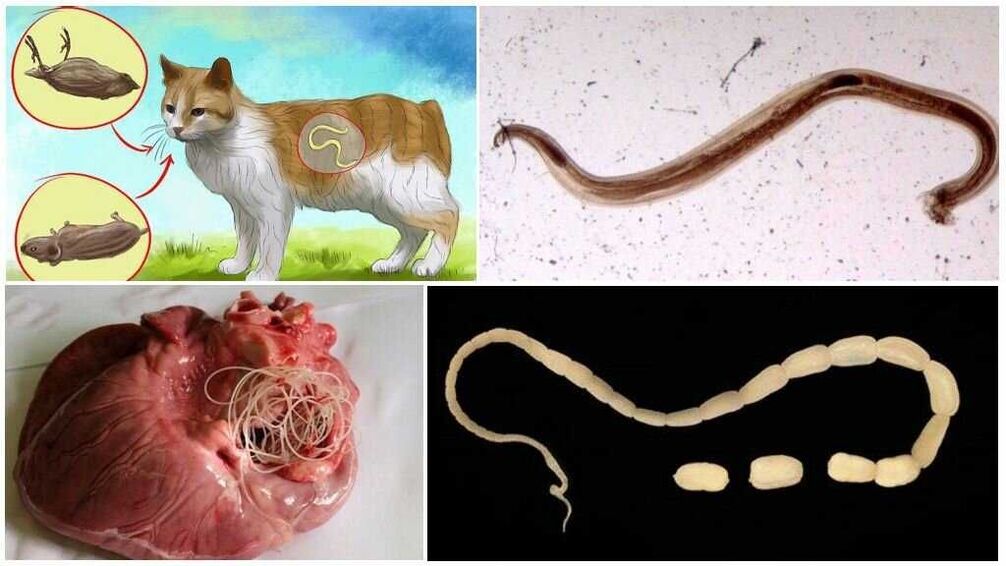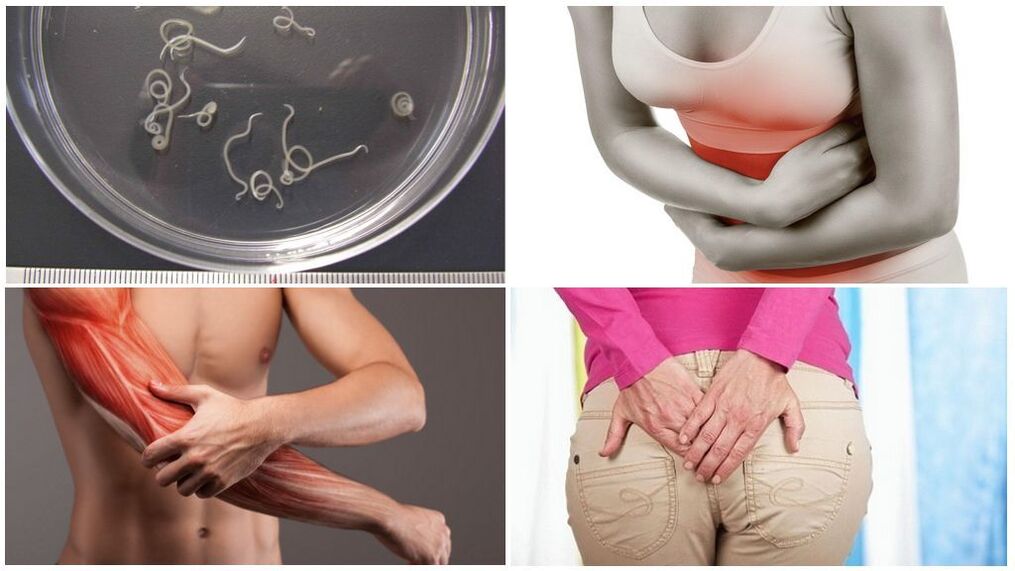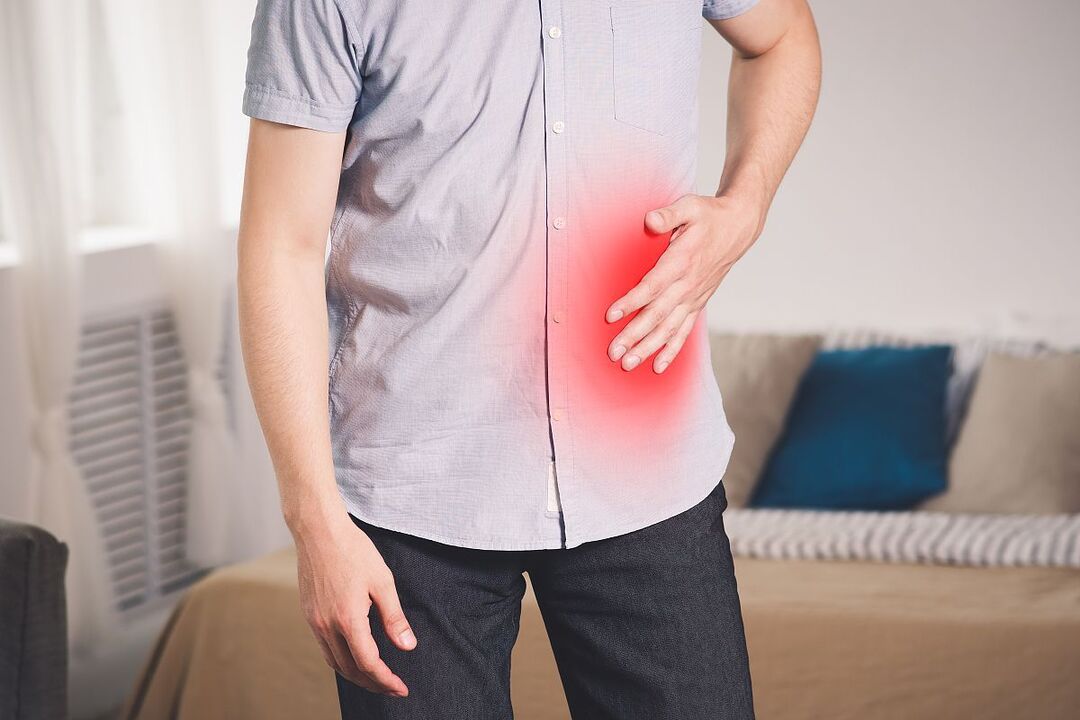Identifying the main signs of helminthic infestation in humans is important, since the problem of this disease still remains relevant. It is very important to be able to recognize the main symptoms of worms in order to start fighting them in time and reduce the damage they can cause.
Helminthiasis can cause many diseases and is particularly dangerous for children.
Determining its origin is not an easy task. Many different illnesses can be confused with this condition. Doctors are faced with the need to make many different diagnoses.
The first signs of the presence of worms do not have clear characteristics or regularity of manifestations. A person suffering from this condition may continue to appear healthy for a long time without realizing their illness.
Identification of signs of the presence of worms in a person should be carried out by a doctor who, after appropriate tests, will be able to make an accurate diagnosis, determine what destructive phenomenon he is facing and prescribe the necessary treatment. The presence of worms must be confirmed, because their elimination takes a long time and medications have a toxic effect.
If left untreated, the attack is likely to result in death.
The first signs of parasites are quite difficult to determine precisely. It is easy to confuse one type of pest with another due to their great variety, and only an experienced doctor is able to identify the specific parasite. This is extremely important for rapid recovery and identification of the circumstances that contributed to the problem.
However, parasitic signs are now well studied and can be detected by experienced professionals. If you have the slightest suspicion, seek medical attention immediately.
Methods of penetration of helminths

Parasitic infection occurs easily under certain conditions and at any age. The most common modes of infection are: eating raw or undercooked meat, contact with soil, animal hair and feces, drinking water from an unreliable source, and lack of water. hand-washing habits (especially after using public toilets).
Parasites enter the body through insect bites and insufficiently thorough washing of vegetables and fruits. Flies are the main carriers of parasite eggs. When you buy products in small stores or pavilions, you run the risk of purchasing a product visited by a fly.
She had been exposed to feces before this happened and the presence of parasites is evident. Human presence does not deter these insects, and they are always nearby. No amount of tape or spray can get rid of it.
The parasitic worm can enter the human body through another person, who then becomes a carrier unnoticed. The method of spreading pinworms is very simple and dangerous in its simplicity. It is well researched and highlights the importance of good hygiene.
The pinworm leaves the intestines and lays its eggs directly on the laundry. This is accompanied by severe itching, and when scratching the irritated area, the victim easily transfers eggs to household items, hygiene items and clothing. Other family members can easily become infected and become infected with parasites this way. It is best to iron laundry with a hot iron and use personal towels.
Open bodies of water are dangerous due to the presence of parasite eggs. They get there easily and are stored for a long time. The danger lies not only in drinking water, bathing, but even walking barefoot. This is especially true for tropical reservoirs not visited by tourists. Vacationing in exotic waters can lead to serious infection.
Symptoms that occur when infected with worms

Humans can harbor parasitic worms that feed and reproduce in various organs of the body. They can even be found in blood. This disease is dangerous because it can go unnoticed for a long time or manifest symptoms similar to many others, most often associated with gastrointestinal problems.
Up to 170 different species of worms can live and parasitize humans. The greatest danger is represented by echinococci and alveococci. Worms are generally divided into two categories: round and flat. They can live and feed on humans for many years, gradually destroying a person's health from the inside.
Children are most often infected with parasites and it can be difficult to get rid of them completely, because children are constantly in contact with animals, play in the sand and often put their hands in their mouths. It is difficult to explain to young family members, especially those under 4 years old, the importance of hygiene and ensuring that they do not touch their eyes and mouth with dirty hands. It is difficult for them to avoid reinfection.
For parents, trying to isolate their child from worms can be a real headache and cause constant irritation. The child cannot be admitted to nursery school or school.
What are the possible signs of the presence of worms in humans?
Symptoms of the presence of worms in the human body vary greatly depending on the type of parasite, its development and location. Additionally, the same signs of worms can appear differently in different people, affecting their complexion, lifestyle and overall health. These manifestations can present varying degrees of discomfort.
What are the main signs of the presence of worms to look out for?

Signs of worm infection can go unnoticed for a long time and cause chronic illness and even fatal consequences.
Worms interfere with the treatment process and contribute to the development of complications. In women, they can cause problems with the reproductive system and in men, in addition to affecting the ability to produce offspring, they can disrupt normal urinary potency and function.
In the intestines, worms manifest themselves with the appearance of unpleasant pain in the abdominal area, frequent stomach pain and general weakness. Later, vomiting, nausea and a constant feeling of heaviness after eating may occur. Rashes and disruption of the intestinal microflora are also possible.
What do worms do to us?
Signs of infection usually include: abdominal pain (especially at night), intestinal problems, stomach discomfort after eating, severe weakness and fatigue, shortness of breath, trouble sleeping, itching in theanus (worse at night).
So, the typical signs of the presence of worms in the body:
- skin lesions;
- lethargy, headaches;
- feeling of heaviness after eating;
- abdominal cramps, nausea;
- bad breath;
- weight changes (sudden weight loss or gain);
- discomfort in the anus;
- diarrhea, constipation;
- frequent colds and viral diseases due to decreased immunity;
- anemia (parasites drink blood from the intestines);
- painful urination;
- frequent miscarriages and menstrual irregularities in women;
- children have developmental and growth delays;
- problems with memory and school performance.
When the worms settle in the lungs (most often long), the signs of the appearance of worms will be as follows: fever, shortness of breath, sputum with blood. Hoarse sounds will be heard when listening to the lungs if they contain worms. Any infection transmitted by airborne droplets can easily infect such a patient.
The worms have quite pronounced symptoms, and treatment should begin immediately after diagnosis.
Parasites that live in the body of a healthy person usually show obvious signs of illness and can be quickly detected by a specialist. It is important to remember the name of the parasite and purchase special drugs to destroy it. Consumption of foods that may contain worms should be strictly avoided if the presence of worms is suspected.
Worm treatment

Getting rid of this problem is not so simple and requires several steps. First of all, you need to take activated charcoal so that it binds and eliminates toxic substances released by parasites that accumulate in large quantities in the body. Then you need to start taking anthelmintic drugs.
The doctor will tell you which drug to choose after conducting a complete examination of the patient and studying all the test results. It is necessary to supplement the treatment with a course of restorative medications for at least two months.
You will need products to strengthen the immune system (containing echinacea), to restore the functioning of the liver and intestinal microflora (preparations based on beneficial bacteria).
Attention!Treatment should only be prescribed by a doctor, since an incorrectly chosen remedy can not only have no effect, but also cause harm. Self-medication is especially unacceptable in children.
General recommendations to avoid infection
FAQs
What symptoms can indicate the presence of worms in a person?
Symptoms of a worm infestation may include constant fatigue, weight loss, insomnia, itching in the anus, and the presence of worms or worm eggs in the stool.
What signs can indicate that a person is infected with worms?
Signs of worm infestation may include abdominal pain, diarrhea or constipation, anemia, eating disorders, and nervousness and irritability.
Useful tips
Recommendation #1
Consult your doctor for professional advice and diagnosis. Only a specialist will be able to accurately determine the presence of worms and prescribe appropriate treatment.
Recommendation #2
Pay attention to symptoms such as constant fatigue, weight loss, restless sleep, itching in the anus, and worms in the stool. If they exist, be sure to discuss them with your doctor.
Recommendation #3
Observe the rules of hygiene: wash your hands thoroughly before eating and after using the toilet, process vegetables and fruits before eating, do not drink raw water.
























